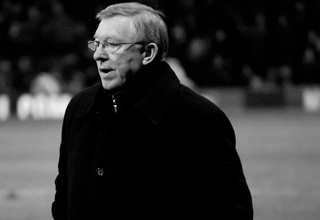Upping Your Game: Career Coaching
Gill Frigerio and Phil McCash discuss the benefits of career coaching
Published April 2013
At the end of the day, your career is a game of two halves where you give a hundred and ten per cent to achieve your full potential and show that you’re not just good on paper. Clichés; the lingua franca of football coaches, pundits and players but they’re not helpful if you want to get ahead in most other careers. Gill Frigerio and Phil McCash explain why career coaching can be a great option for professional development from the first whistle through to the business end of the season.
 There are a lot of different terms used around career coaching but they have a similar feel. Are career guidance, career education and career coaching different names for the same thing?
There are a lot of different terms used around career coaching but they have a similar feel. Are career guidance, career education and career coaching different names for the same thing?
Gill: These terms come from different places and are sometimes used to reflect different styles of career helping. They have more in common than sets them apart though and several different professional groups have come together under the umbrella of the Career Development Institute.
Phil: We take a broad view of career coaching, and feel no need to differentiate it from other terms. It includes informing, listening, advising, modelling, assessing, enabling, facilitating and feeding back. These activities can take place through one-to-one interactions or group working, online and offline. Career coaches will also engage in further enabling activities such as networking, advocating, peer training and systems change.
Should I get a career coach?
Gill: We see career coaching as relevant to all ages and stages of career development. It can involve exploring past experiences as well as discussing the future. A range of career-related roles and interests may be addressed beyond the tasks of paid work. It may involve a single one-to-one discussion, group work or a longer term series of interactions over a period of months or years. Career coaching can take place in a wide variety of settings including the public and private sectors, small and large organisations and community contexts. It can take place from entry level to board level and occur within the context of existing work or personal relationships.
Our focus is on learning as a common thread through all these activities: learning about self, about options for how to spend your time and about how to create change.
How do you create change?
Phil: We all carry round our own theories and generalisations about the world, and they inform how we read the situations we encounter, situations including clients and the issues that they bring. Clients too will have their own personal career theories. A career coach engages with the key concepts to deepen their understanding, developing a wider vocabulary with the aim of better understanding someone else’s career and then using that knowledge to discuss career development with them.
A useful analogy might be orienteering; different compass readings are taken and triangulated in order to best locate your current position. Different theoretical areas, which might draw from disciplines such as education, psychology, sociology, philosophy, organisational studies, psychoanalysis, literary studies and creative studies, can be used to help a coach ‘triangulate’ and draw closer to their client and that person’s career concerns.
To continue the analogy, what are the coaching equivalents of a compass, map and Kendal mint cake?
Phil: It’s important to develop a wide repertoire of practice through the integration of theory and practice rather than the application of theory to practice. A career coach will develop the ability to reflect on, and in, action and should be able to creatively design and agree models of action and enable their clients to do the same.
Gill: Career coaches can facilitate and support learning through a number of techniques from creative dialogue to psychometric instruments. This toolkit can be reassuring for a career coach but it is also important that they remember their clients are people seeking to find their own shape. They’re not pieces of wood to whittle away at!
Would a coach just look at my career history?
Phil: Career coaching is inevitably a social process and it operates within social structures: affected by gender, ethnicity, geography and so on.
Gill: We refer to these structures as opportunity systems, around which varying discourses have emerged in public policy and the mainstream media. An example of this, in the UK, is the use of the term ‘NEETs’ (young people Not in Employment, Education or Training) under the previous Labour government or the role of ‘workfare’ programmes under the current coalition government.
Phil: Understanding opportunity systems and the discourses involved are key competences within career coaching. A career coach can help you understand, interpret and plan responses. This does not mean engaging in didactic or directive practice. It may involve, for example, helping someone to identify, evaluate and make responses to labour market messages. A career coach should move away from parroting truisms about the labour market towards facilitating your own research and decision-making.

 Gill Frigerio is a senior teaching fellow at the University of Warwick who leads on the qualifications in the management of student work experience and is co-director of the MA in career development and coaching studies along with Phil McCash. Phil teaches on a range of subjects at Warwick including career development theories, vocation, career development learning and labour markets. He has also edited a special issue of the National Institute for Career Education and Counselling (NICEC) journal on 'New perspectives on career coaching'.
Gill Frigerio is a senior teaching fellow at the University of Warwick who leads on the qualifications in the management of student work experience and is co-director of the MA in career development and coaching studies along with Phil McCash. Phil teaches on a range of subjects at Warwick including career development theories, vocation, career development learning and labour markets. He has also edited a special issue of the National Institute for Career Education and Counselling (NICEC) journal on 'New perspectives on career coaching'.
Image of Sir Alex Ferguson at Old Trafford Source: Andrea Sartorati.
